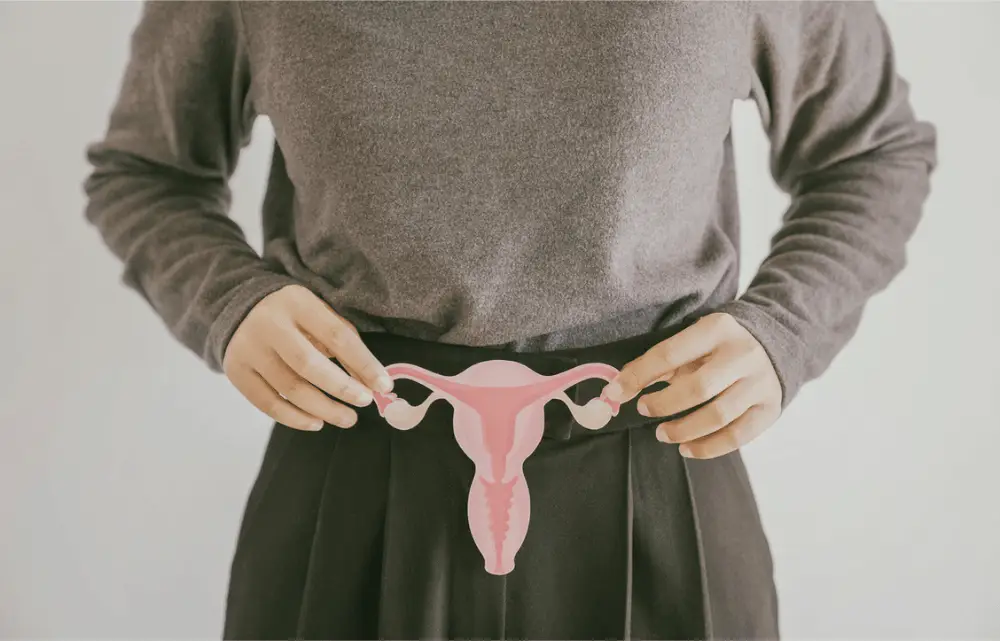Reviewed by Dr. Leigh Ann Scott of Forum Health Las Colinas
Polycystic Ovarian Syndrome (PCOS) is a common hormone health issue affecting up to 5 million US women of child-bearing age and can continue far beyond the reproductive years.
While conventional medicine offers various treatments for PCOS, an increasing number of women are turning to functional and integrative medicine for a holistic treatment approach to managing this condition.
In this blog, we’ll delve into how functional and integrative medicine approaches PCOS treatment differently, offering hope and relief to those struggling with this challenging health condition.
What is PCOS?
The National Institutes of Health states that women with PCOS have at least two of the following conditions:
- Absence of ovulation, which leads to irregular or no menstrual periods
- High levels of androgens, such as testosterone and DHEA (often thought of as male hormones, but women have them as well)
- Cysts (fluid-filled sacs) on one or both ovaries
However, while “polycystic” literally means “having many cysts,” some women diagnosed with PCOS don’t have cysts on their ovaries. What happens over time is that because the ovaries contain follicles, eggs that are released do not make it down to the uterus and become trapped in the follicles. The ovaries appear enlarged because the follicles that surround the eggs look like “cysts.” An ultrasound is usually required to confirm a PCOS diagnosis.
PCOS Symptoms May Include:
- Irregular menstrual cycles
- Absent periods
- Ovarian cysts
- Excessive hair growth (hirsutism)
- Acne
- Weight gain
- Infertility
- Sleep apnea
- Thinning hair
- Mood changes
- Pelvic pain
- Depression and anxiety
- Insulin resistance
Conventional Treatments vs. Functional Medicine for PCOS
Conventional medical treatments for PCOS often focus on only managing symptoms through the following methods:
- Medication, such as birth control pills, to regulate menstrual cycles
- Anti-androgen medications to address hirsutism and acne
- Fertility treatments for those trying to conceive.
While these treatments can be effective for symptom management, they often fail to address the underlying causes contributing to PCOS and may come with many unwanted side-effects.
Functional and integrative medicine, on the other hand, takes a comprehensive and individualized approach, using advanced diagnostics, hormone therapy and lifestyle modifications. Rather than simply masking symptoms, these approaches seek to restore balance to the body’s systems, promoting overall health and well-being.
PCOS Treatments
- Advanced Testing – Functional and Integrative medicine providers use a variety of advanced diagnostics not always found in conventional care including:
- DUTCH Test – Measures hormones found in dried urine to indicate how your hormones are metabolized. It also includes many more important markers than a traditional blood or saliva test.
- Thyroid Testing – Women with PCOS are more likely to develop a thyroid disorder. Integrative and functional medicine tests evaluate a range of essential markers including thyroid hormones, antibodies and nutrient levels.
- DUTCH Test – Measures hormones found in dried urine to indicate how your hormones are metabolized. It also includes many more important markers than a traditional blood or saliva test.
- Hormone Balancing with BHRT: Balancing hormones is a key focus of functional and integrative medicine approaches to PCOS. Bioidentical hormone replacement therapy (BHRT) is a treatment that uses hormones chemically identical to those naturally produced by the body to restore hormonal balance. While BHRT is more commonly associated with menopause and hormone imbalances in older adults, it can also be beneficial for PCOS including:
- Estrogen and Progesterone Balance: Many women with PCOS experience imbalances in estrogen and progesterone levels, which can contribute to irregular menstrual cycles and other symptoms. BHRT can help restore balance to these hormones, promoting regular ovulation and menstrual cycles.
- Testosterone Regulation: Elevated levels of testosterone are common in women with PCOS and can lead to symptoms such as hirsutism (excessive hair growth), acne, and male-pattern baldness. BHRT can help regulate testosterone levels, reducing these symptoms and improving overall well-being.
- Regulating Menstrual Cycles: BHRT can help regulate menstrual cycles in women with PCOS who experience irregular or absent periods. By restoring estrogen and progesterone balance, BHRT can promote ovulation and regular menstruation.
- Reducing Hirsutism and Acne: Testosterone regulation through BHRT can help reduce symptoms of hirsutism and acne in women with PCOS, improving both physical appearance and self-esteem.
- Improving Ovulation: BHRT may help improve ovulation in women with PCOS who are trying to conceive. By restoring hormonal balance, BHRT can increase the likelihood of regular ovulation, enhancing fertility.
- Estrogen and Progesterone Balance: Many women with PCOS experience imbalances in estrogen and progesterone levels, which can contribute to irregular menstrual cycles and other symptoms. BHRT can help restore balance to these hormones, promoting regular ovulation and menstrual cycles.
- Diet and Nutrition: Nutrition plays a crucial role in managing PCOS symptoms. Functional medicine practitioners often recommend a diet low in refined carbohydrates and sugars to help stabilize blood sugar levels, decrease inflammation and reduce insulin resistance, a common feature of PCOS. Emphasizing whole, nutrient-dense foods such as vegetables, fruits, lean proteins, and healthy fats can support hormone balance and metabolic health.
- Lifestyle Modifications: Lifestyle factors such as stress management, adequate sleep, regular exercise, and maintaining a healthy weight are essential components of PCOS treatment. Stress-reduction techniques such as meditation, yoga, or acupuncture are recommended to support hormonal balance and overall well-being.
- Supplements and Herbs: Certain supplements and herbs may offer benefits for women with PCOS such as inositol which can help improve insulin sensitivity and ovarian function. Herbal remedies such as chasteberry (Vitex agnus-castus) may help regulate menstrual cycles and support hormone balance.
- Gut Health: There is a strong gut-hormone connection in everyone, especially women with PCOS. Functional medicine recommends gut-supportive methods such as probiotics, prebiotics, and dietary fiber to promote a healthy gut microbiome and reduce inflammation, which can contribute to PCOS symptoms.
The Importance of Personalized Care with a PCOS Diagnosis
One of the hallmarks of functional and integrative medicine is its focus on individualized care. At Forum Health, we acknowledge that each woman with PCOS has their own set of unique symptoms, genetic predispositions, and environmental factors influencing their health. Therefore, our functional medicine doctors personalize treatment plans tailored to address your specific needs, preferences, and goals.
PCOS is a complex condition that requires a multifaceted approach to treatment. While conventional medicine offers symptomatic relief, functional and integrative medicine delves deeper, addressing the underlying imbalances that contribute to PCOS. If you’re struggling with PCOS, Forum Health is here as your partner to help you heal, recover and optimize your wellness.
Schedule your appointment today!






